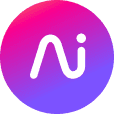If you want to evaluate whether your sales team is doing particularly well or needs a nudge in the right direction, you’ll want to look at their closing ratio. Knowing more about your close ratio can help you determine whether you need to change your sales strategy to shorten sales cycles, make changes to result in better sales calls, or do nothing because you’re already hitting it out of the park.
In this post, we’ll talk about what a closing ratio is, how to calculate your close rate, and how to improve your close rate.
What is a closing ratio?
What is a close rate? A close rate, or closing ratio, is a measure showing how efficiently a sales professional or sales team is performing by calculating how many new leads they convert into sales.
What is a good close rate in sales? The average close rate for sales is between 15 and 30 percent, but it varies among sectors.
A good sales closing ratio lies anywhere in that range depending on the industry. For example, in biotechnology, the average closing rate for sales is 15 percent, in the finance industry, the close rate is 19 percent, and in the computer software industry, the closing rate is 22 percent.
In the computers and electronics industry, a good closing ratio is 23 percent and in the business and industrial sector, the close rate could be as high as 27 percent.
How to calculate closing ratio
Now that we know what a good closing ratio in sales is, let’s talk about how to calculate close rate with the close rate formula.
To calculate close rate, divide the number of successful deals, or conversions, by the total number of leads, and multiply by 100 to get your closing percentage.
Let’s try this closing ratio formula with a concrete example. If you have one sales professional with 50 leads and they successfully close 22 deals, with this closing ratio calculator, you would take (22/50) x 100 = 44 percent.
That’s one very successful sales person.
Why is closing ratio important in sales?
Knowing your sales close ratio is important because it can help you benchmark your sales team’s or sales professionals’ performance.
Closing ratio is important in sales because calculating your team’s closing rate can help managers and sales teams understand what’s working, what’s not, and which stages of the sales cycle need to be improved.
If your team has a high closing ratio, it means that they’re doing well and your strategy is working. If your team’s closing ratio is not up to snuff, it may mean you need to tweak your current strategy because increasing your closing ratio will increase your revenue.
By calculating and tracking your closing ratio, not only can you see whether your sales strategies are working, you can also evaluate how well your marketing team’s campaigns are doing in terms of producing quality leads, track the ROI of talent management and commissions, compare sales cycle data to find and eliminate bottlenecks in the sales pipeline, and appraise the quality of incoming sales opportunities.
How to improve closing rates in your sales team
Your sales team works hard to close deals, but sometimes it pays to work smarter and harder. With Dialpad Ai and its rich suite of Ai features to help with real-time sales coaching, cross-team collaboration, and access to business-critical data and feedback, your sales team can continually improve their closing rates.
Utilize real-time sales coaching
One way to improve your closing ratio is through sales coaching. With Dialpad’s sales AI, you can get features like Ai Assistant, call monitoring features, and sales battle cards that all work in real time.
Ai Assistant is a built-in agent assistant that is deeply integrated into existing knowledge centers, tools, and systems. Agents can access all of the organization’s knowledge base from a single chat interface. With Ai Assistant, your sales team has the answers to key customer questions at their fingertips:
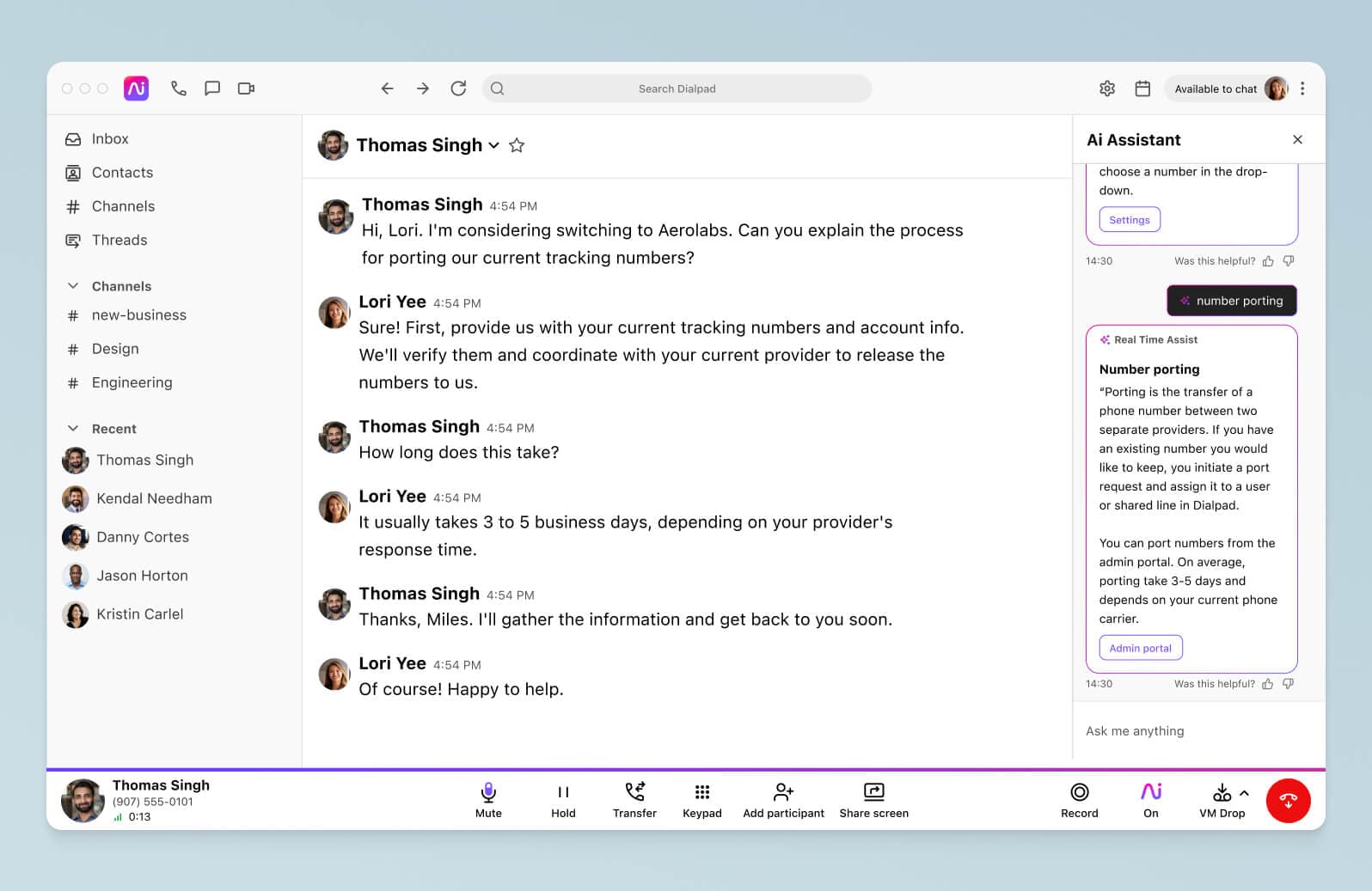
With call monitoring features, your sales team can receive real-time sales coaching from a manager or teammate. Dialpad’s Ai allows for calls to be monitored and transcribed in real time. This way, supervisors can monitor calls without having to listen to hours of audio and jump in when needed to close a deal:
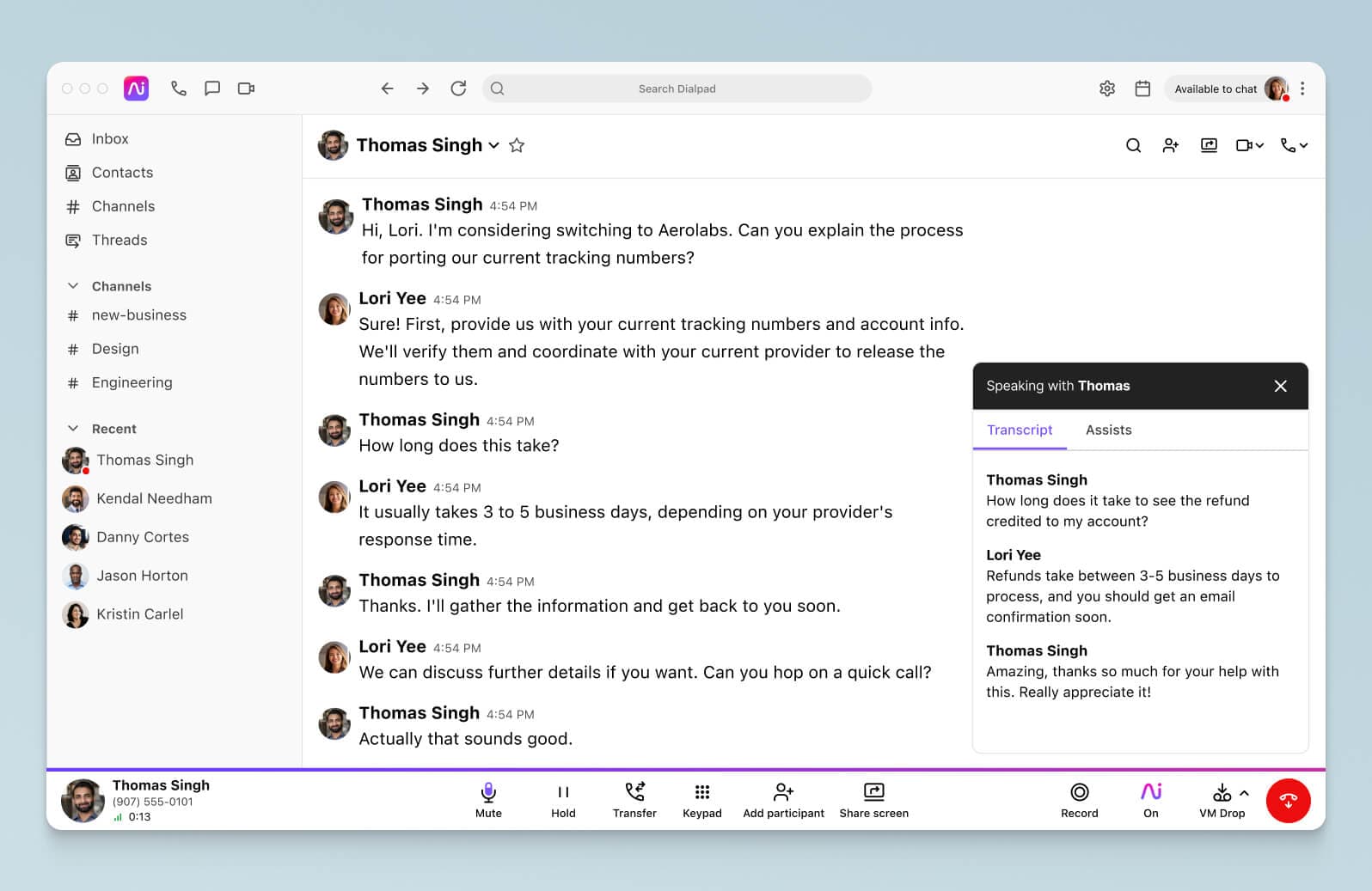
With battle cards, your sales team knows exactly what to say to convert. Battle cards can not only provide your agents with effective sales closing questions and the answers to them, they’re like a cheat sheet for agents when it comes to questions potential customers might ask:
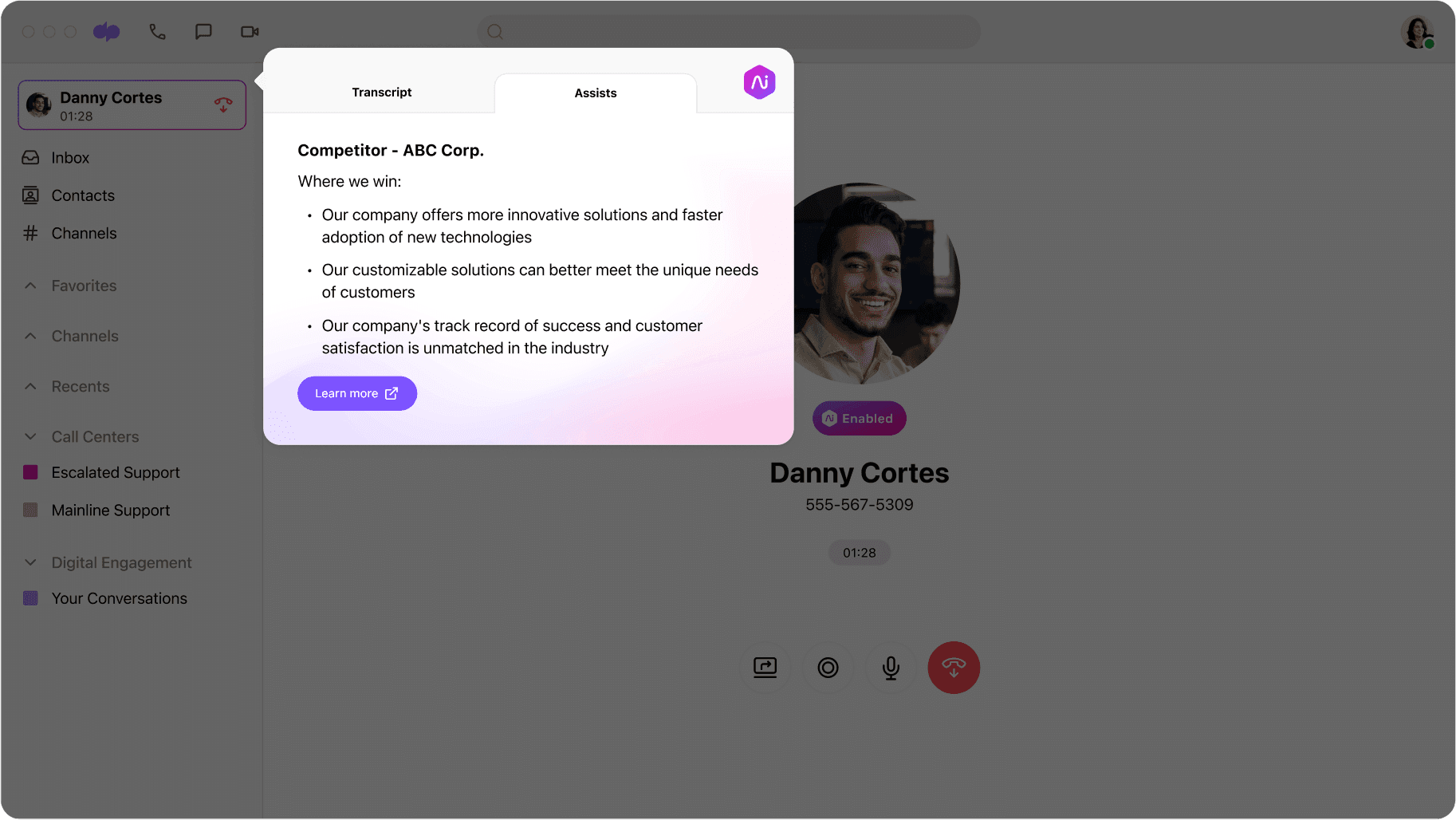
Make cross-team collaboration simpler and easier
Making cross-team collaboration simpler and easier can improve your average sales close rate. If your sales and marketing teams are better aligned, it’ll be easier to improve your closing ratio because your teams can work together on messaging to optimize conversion. Dialpad can make collaboration across teams seamless by centralizing communication across the company.
With Dialpad, you can chat across teams with phone calls, video conferencing, and instant messaging, all in one place. Dialpad syncs on desktop and mobile applications and keeps a record of conversations (with search functionality) for easy reference so nothing is missed.
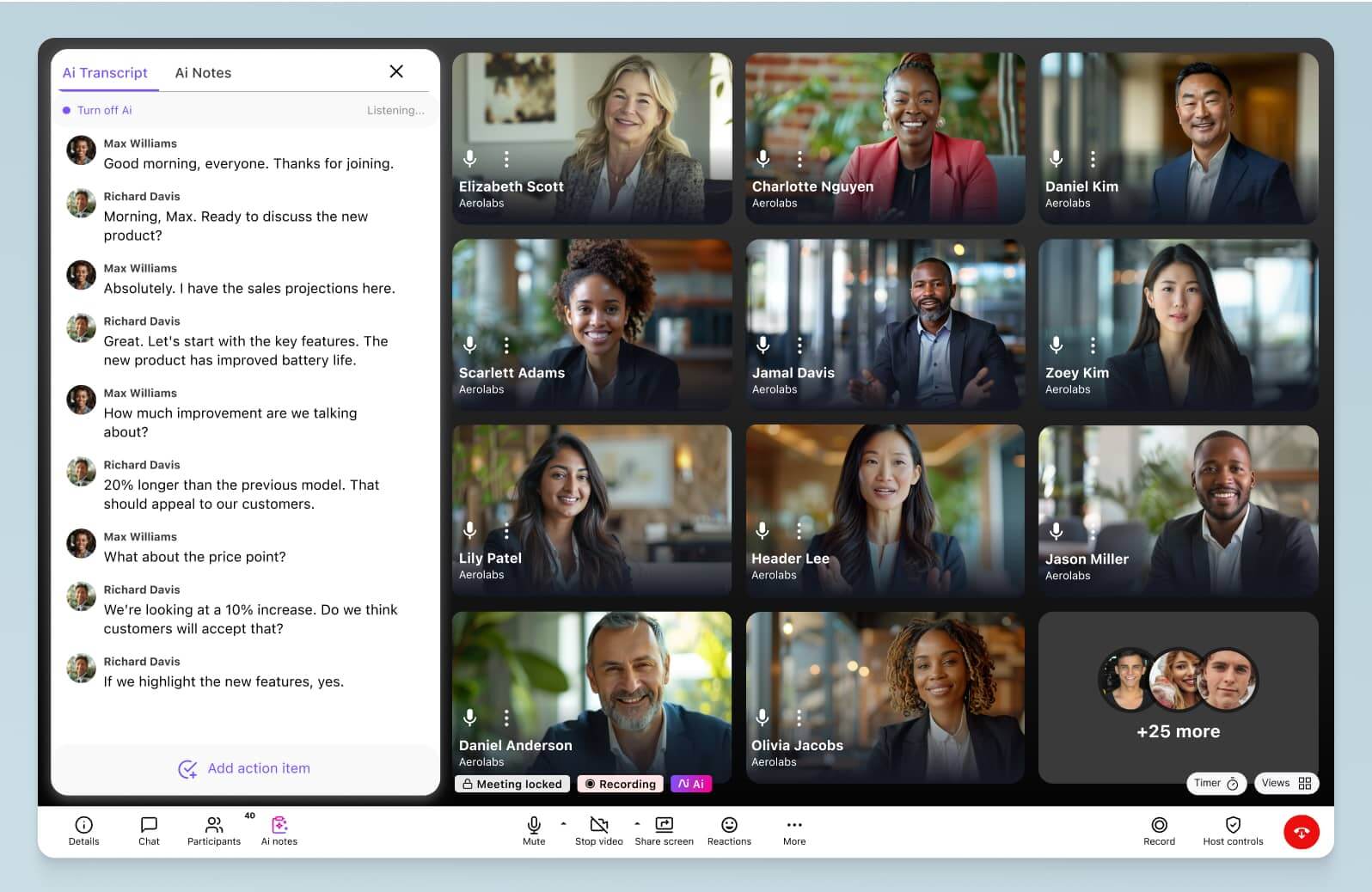
Use data and feedback to continually improve
Dialpad Ai Sales Center can give you the data and feedback you need to continually improve your sales closing rate. For example, Ai Scorecards and Ai Playbooks are two valuable troves of information for your sales team.
Ai Scorecards evaluate agents and sales reps on the basis of metrics like customer service satisfaction, customer loyalty, product knowledge, and problem-solving skills. These scores can be combined into an overall rating that gives managers a better understanding of how each agent is performing at any given time.
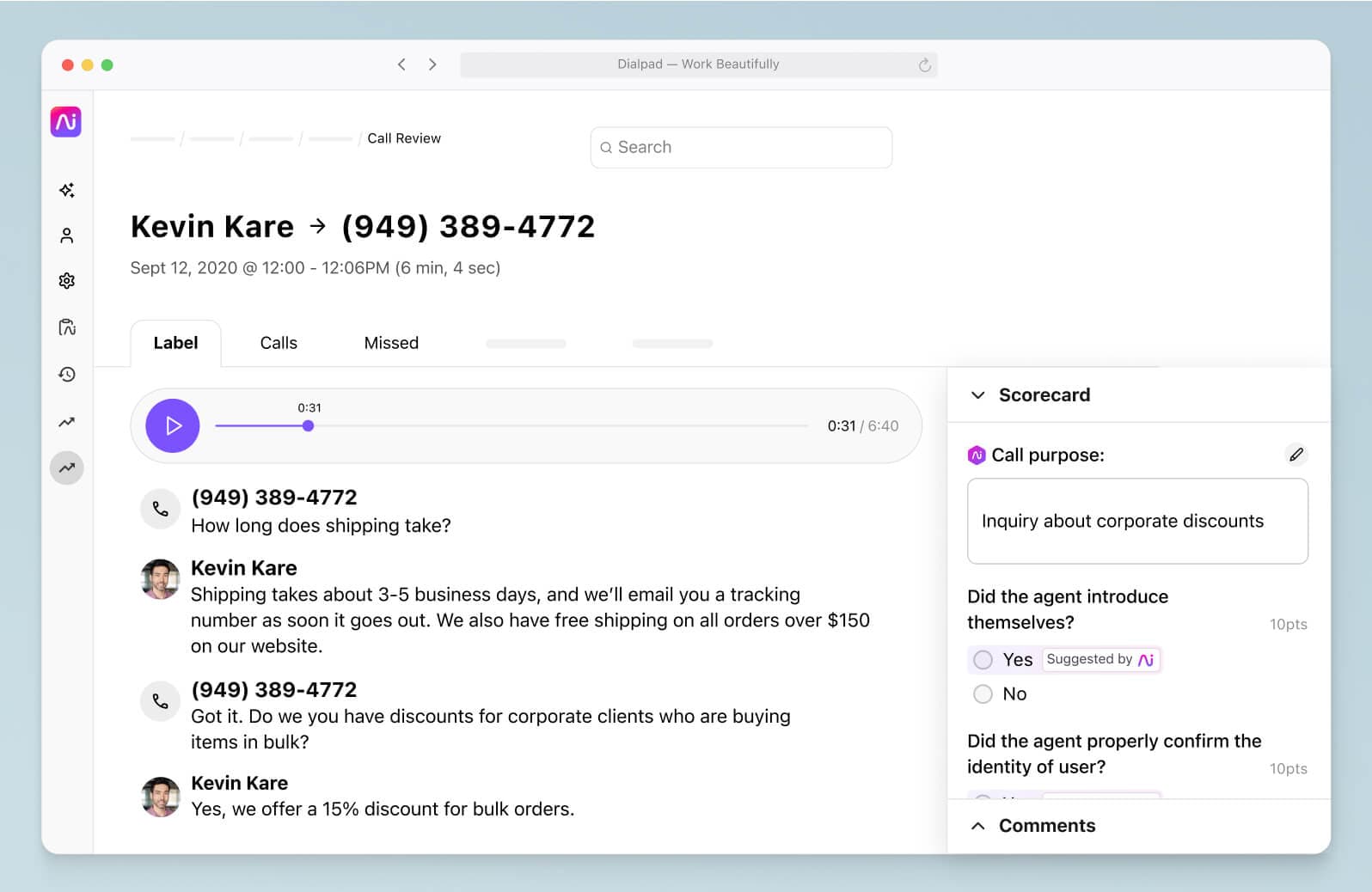
Managers can look at each sales team member's scores in areas like quality, behavior, compliance, soft skills, and customer experience to give feedback on their performance to help team members improve their closing ratio.
With Dialpad’s Ai Playbooks, sales leaders have a dynamic tool that supports their teams’ processes by tracking agent adherence to specific requirements. For example, you could have an Ai Playbook based on a sales methodology (like BANT, SPIN, or SPICED) that tracks rep adherence during live sales calls and also in post-sales call reviews:
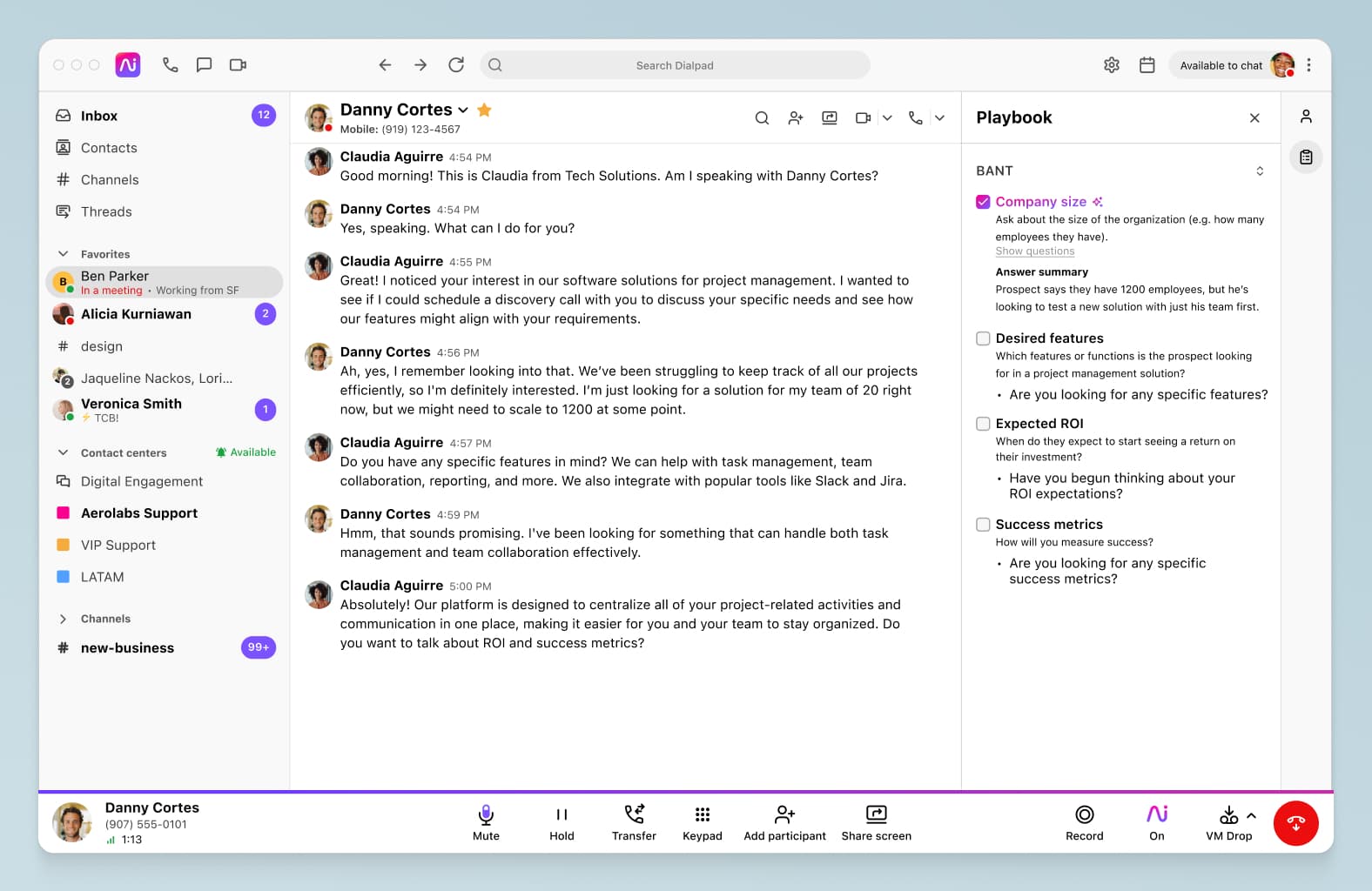
Empower your sales team to improve their closing ratio
Closing ratio is an important metric for sales teams. Not only does your sales team’s closing ratio have an important impact on team morale, it has a critical impact on your organization’s bottom line.
You can help your sales team increase their closure rate by leveraging the power of Dialpad’s team collaboration and Ai features, including Ai Assistant, Ai Scorecards, and Ai Playbooks.
Improving your closing ratio with Dialpad
Contact Dialpad today to empower your sales team to improve their closing ratio by giving them the right tools to close any deal.









